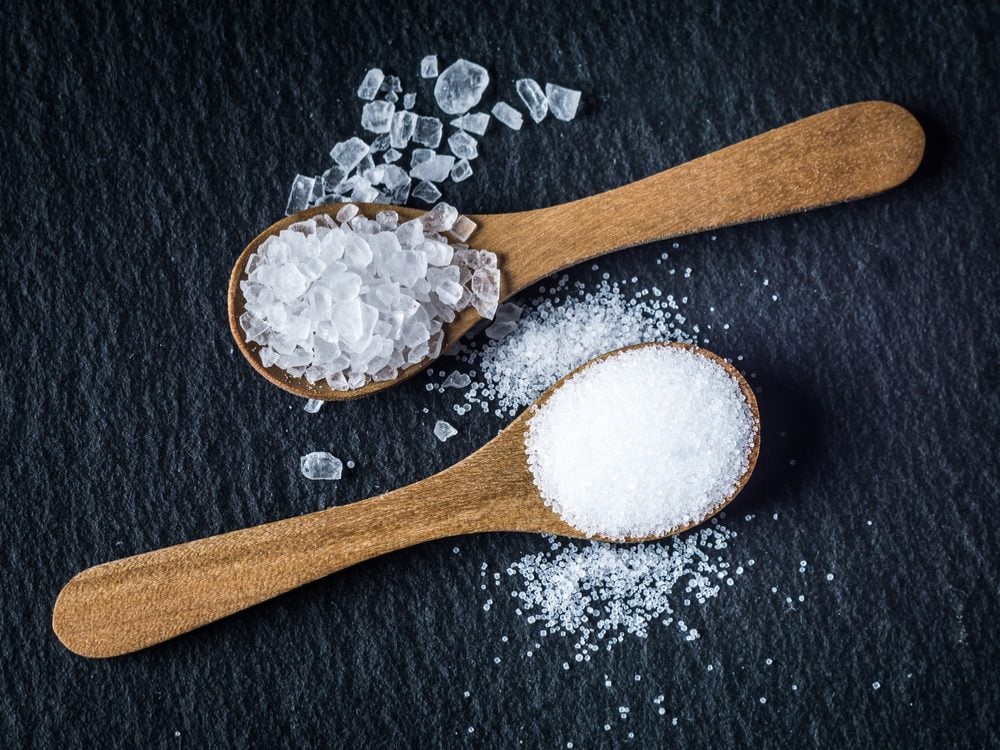
Your diet has too much salt in it
Salt pulls water out of cells and forces the body to conserve as much water as possible, which is why you urinate less when you eat too much salt. The water-deprived cells send a chemical message to the brain asking for more water, and you start to feel excessive thirst. Cut down on your salt intake and make sure you’re drinking enough water.

You went for a morning run
“You’re going to need to drink more on days when you sweat more,” says Peter Mayock, MD, medical director of the West Town Adult Clinic of the Erie Family Health Center in Chicago. When you exercise, you lose fluids through sweat, and if you don’t replace that fluid, you could end up with excessive thirst. There isn’t one formula as to how much you should be drinking, but Dr. Mayock says listen to your body.
Discover the health benefits of walking 10,000 steps a day.

You’ve been out in the sun for too long
When summer finally arrives, you spend more time in the great outdoors, whether it’s in a park, on a beach, or in your backyard. Even if you’re not running around, you can still become dehydrated, especially in the hot sunlight. If you know you’re going to be outside all day, make sure you have a water bottle handy.
Protect your skin by following these summer sunscreen tips.
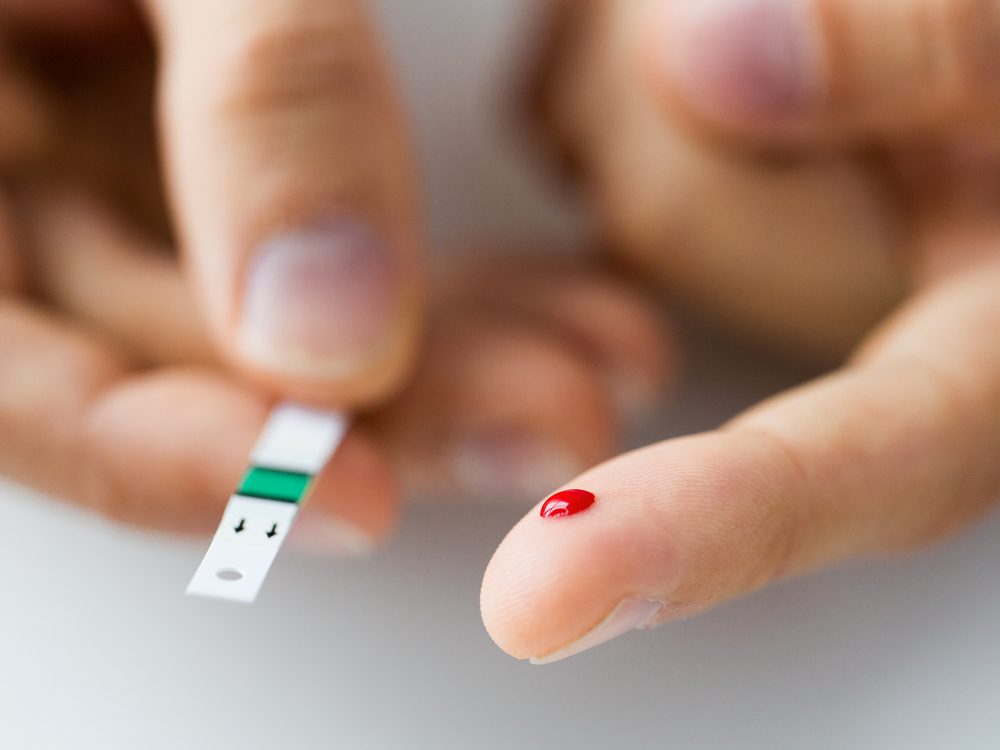
You might have diabetes
Some patients mistake diabetes for dehydration. “With dehydration, your body wants to preserve liquids,” Dr. Mayock says. “With diabetes, the sugar is spilling and forcing you to urinate more often.” He says most of his patients exhibit three signs of diabetes: excessive thirst, excessive urination, and blurred vision. If you’re experiencing all three, talk to your doctor about your concerns.
Don’t miss these other silent signs of diabetes.
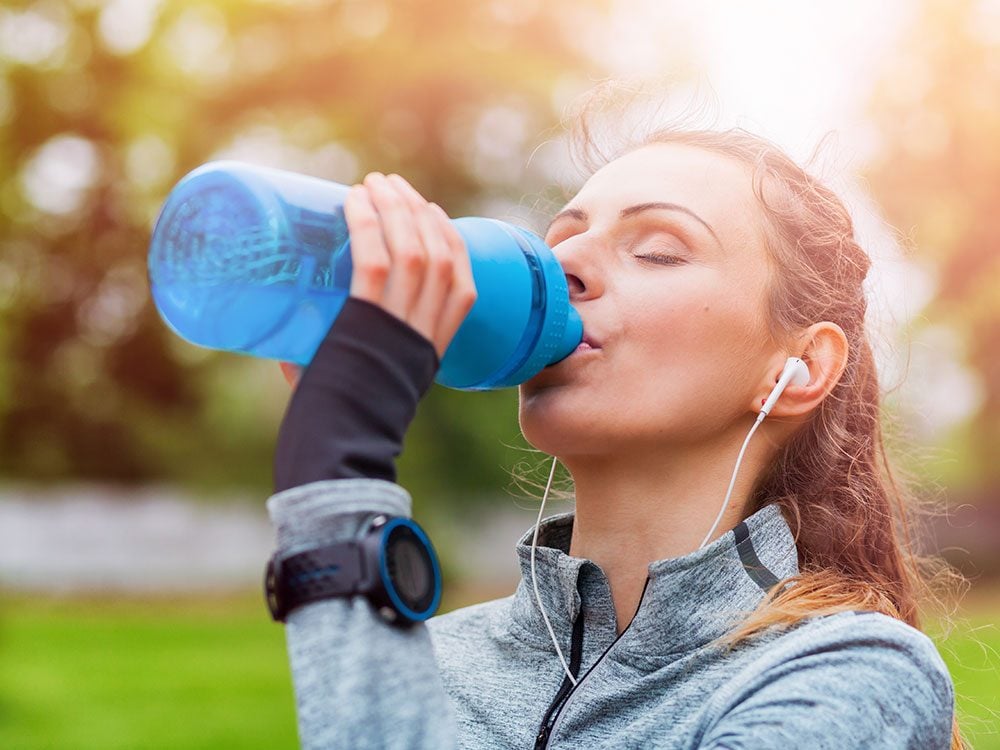
You have xerostomia, better known as dry mouth
Some rare conditions do cause dry mouth, says Dr. Mayock. When the saliva glands in the mouth don’t produce enough saliva, you may feel you need to drink more water to get rid of the feeling. If your feelings of dry mouth persist, visit your doctor for more information.
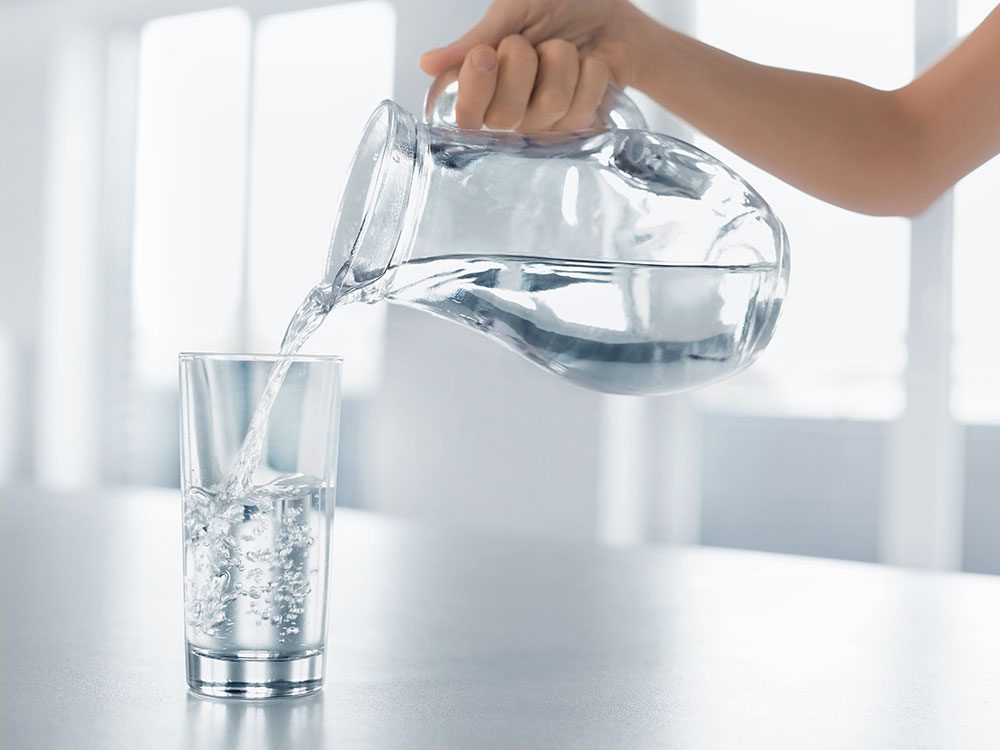
You could be anemic
Your body relies on healthy blood cells to carry blood throughout the body. Mild anemia usually won’t cause excessive thirst, but if your condition becomes severe, you may feel thirsty as well as dizzy and sweaty.
Check out more symptoms that can signal a serious disease.
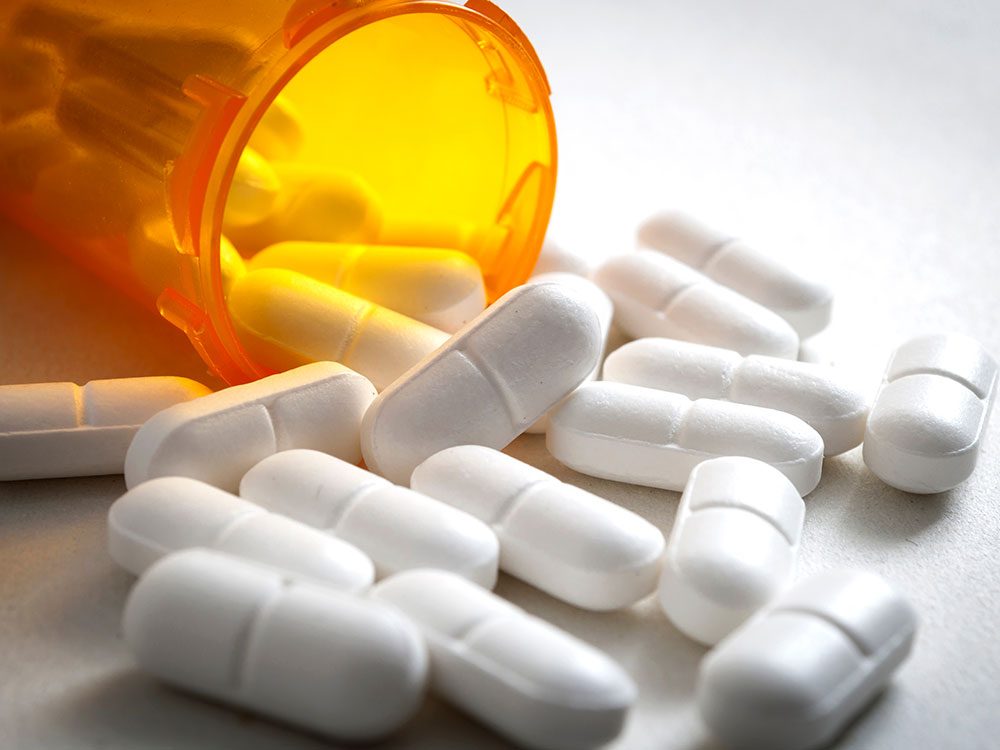
Your medication is drying you out
“There are a number of medications that affect your mouth and can make you have a dry mouth,” Dr. Mayock says. For example, antihistamines, certain antidepressants, and diuretics for high blood pressure list dry mouth as a potential side effect. Again, talk with your doctor if your excessive thirst is concerning you.
Eating more of these foods can lower your blood pressure.
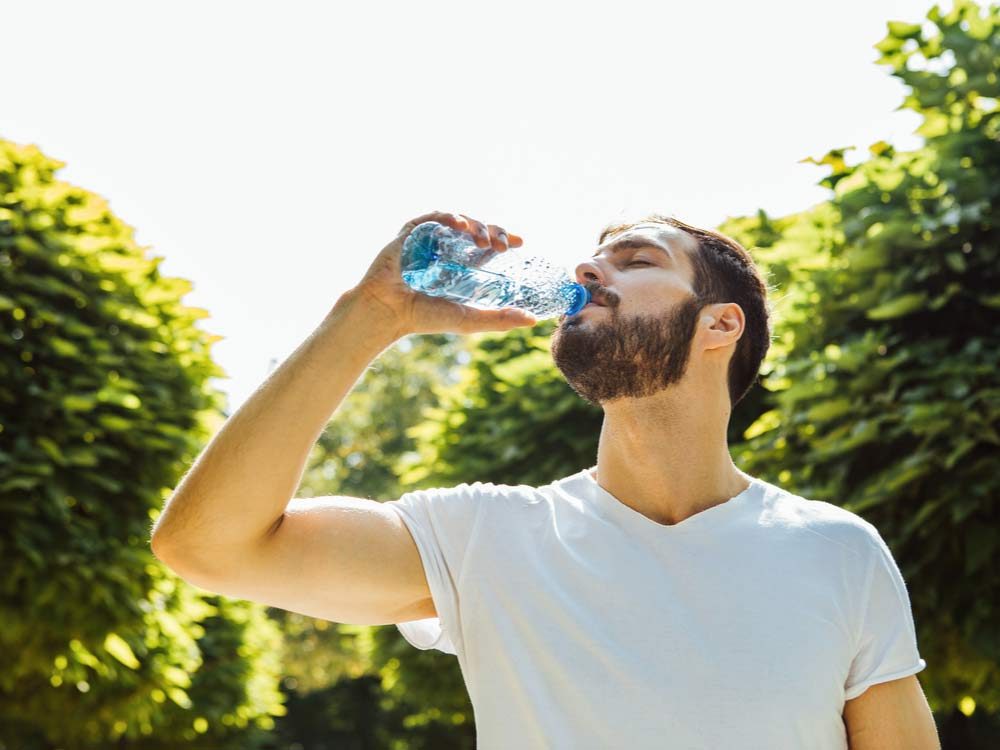
You miscounted how many glasses of water you’ve had
“The number-one cause of thirst is just not drinking enough water,” says Dr. Mayock. As a good rule of thumb, drink one glass of water with each meal and two in between meals, he suggests. If it helps, set an alarm on your phone and have it go off once every two hours. This will be your reminder to either drink a glass of water or down what’s left in your water bottle and fill it back up.
Next, check out the surprising health benefits of staying hydrated.